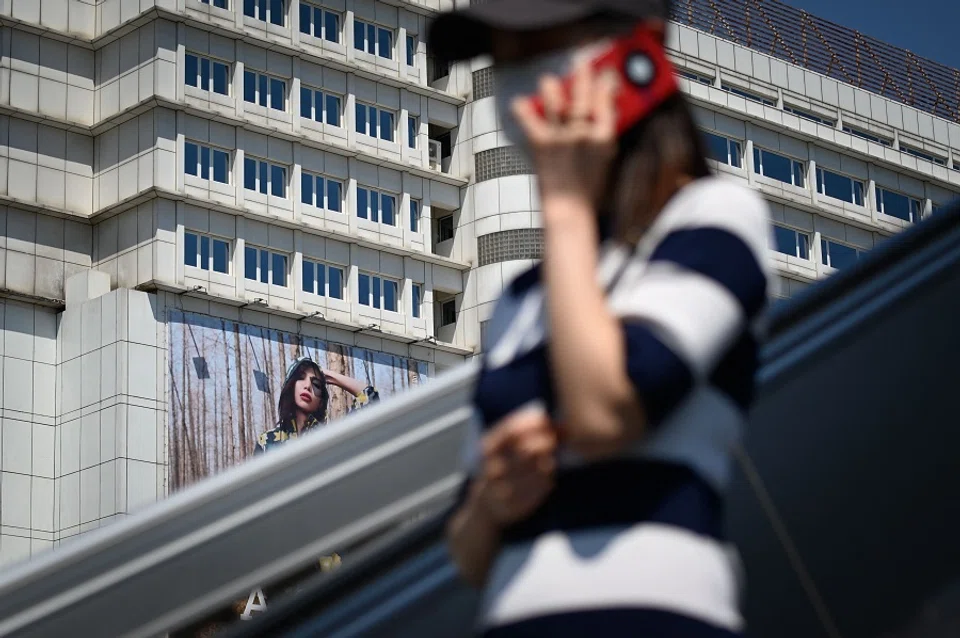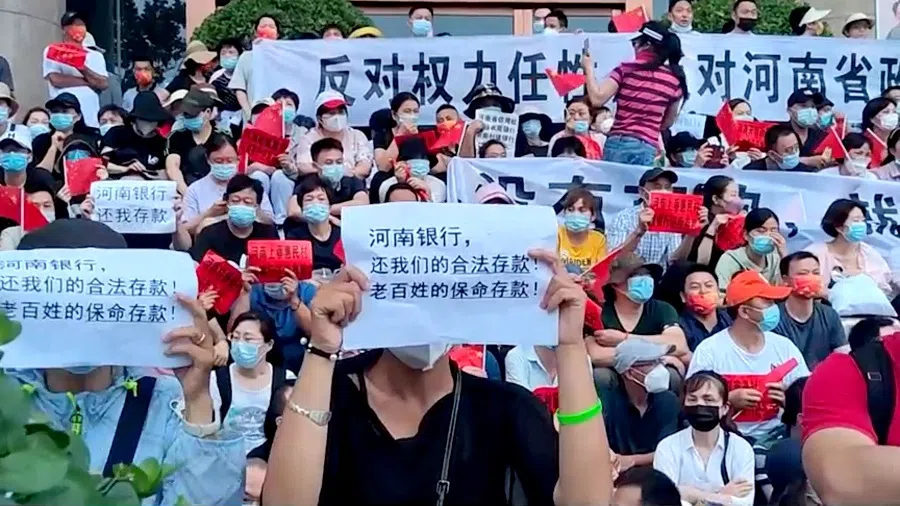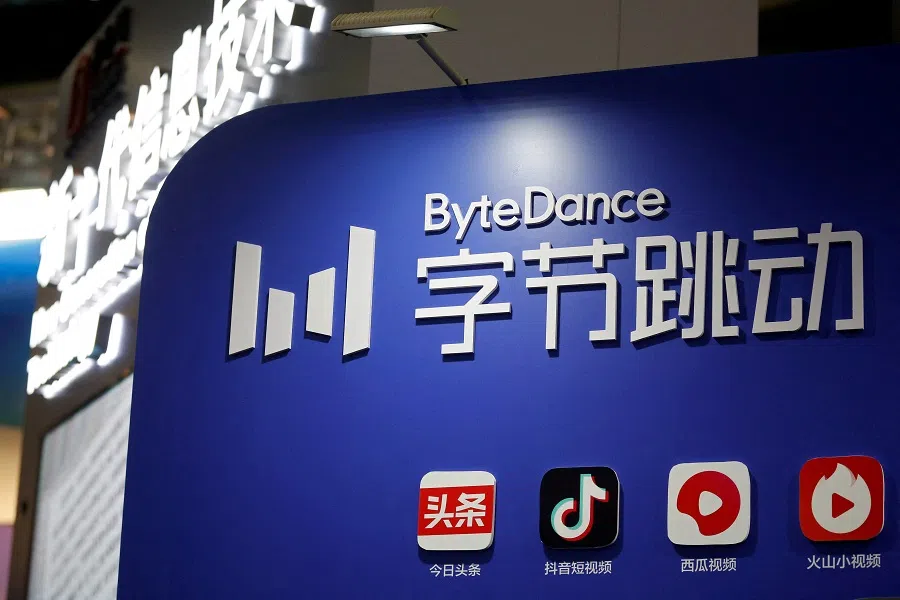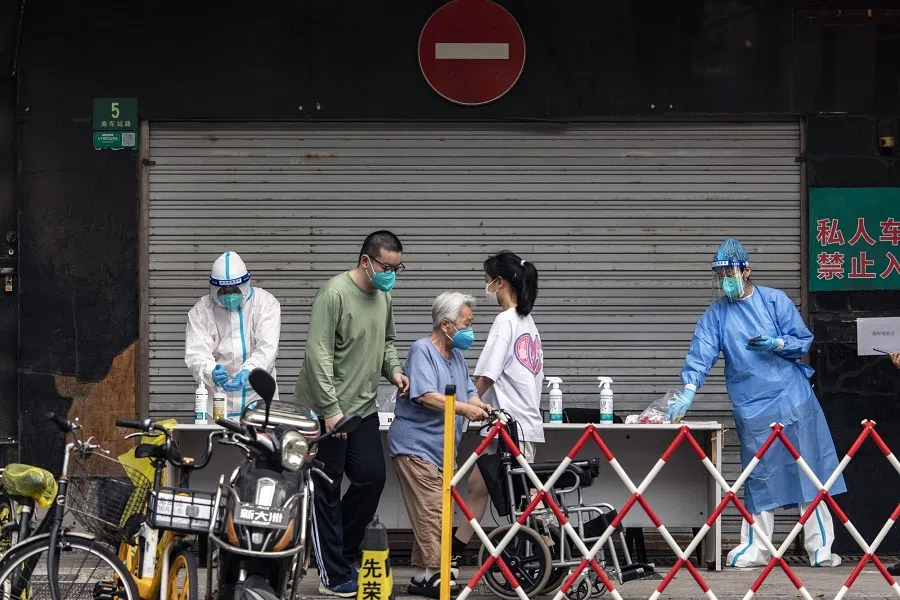The dwindling space for public opinion in China
Chinese social media platforms such as Weibo, Bilibili and Douyin have announced measures to clean up the use of miswritten words and homonyms that could be related to sensitive terms, sparking backlash from netizens. Zaobao correspondent Wong Siew Fong tells us more.

Recently, an incident involving "a bank in the Netherlands" (荷兰 Helan) made its rounds on Chinese social media. Netizens shared that there was a "battle" (written in English) outside the bank and customers were unable to withdraw their savings.
Did the Henan rural bank scandal spread overseas? After a while, I realised that Chinese netizens were using Helan, a homonym of Henan, to avoid being censored.
Replacing sensitive terms
Before I was posted to Beijing, friends in China had warned me against using sensitive terms on online communication or social media platforms - a practice that Chinese netizens know well.
In fact, there are a few points to note when reading online posts on the Chinese internet: sensitive terms may be replaced with homonyms, peculiar English translations or hanyu pinyin acronyms.
For example, netizens used the homonym 锐进 (ruijin, lit. spirited and progressive) to refer to the stabbing incident at Shanghai's Ruijin (瑞金) Hospital. Domestic security police (国保 guobao) responsible for maintaining stability are referred to as 国宝 (guobao, lit. national treasure), while the government is called "ZF", the hanyu pinyin acronym for zhengfu (government).

However, this practice came under attack recently in a crackdown by Chinese social media platforms. On 12 July, video sharing platform Bilibili published a letter urging its users to use standard Chinese characters and to say no to weird fonts and incorrect structures.
On 13 July, Weibo announced that it would launch a campaign to rectify "the illegal behaviour of using homophone characters, variants of words, and other 'misspelt words' to spread harmful information"; enhance screening measures to remove such posts; strengthen the platform's "mechanism of language [wording] supervision" and refine the "keyword identification model"; as well as encourage users to write in standard Chinese characters through incentives and public events.
That same day, a netizen complained that s/he had been blocked while livestreaming on Douyin, the Chinese version of TikTok. The netizen claimed that the platform censors terms such as "seckill" (秒杀 miaosha, an online gaming slang for defeating an enemy within seconds, or the quick sell-out of online products), "earn money" (赚钱 zhuanqian), "livestream room" (直播间 zhibo jian) and "due to the pandemic" (疫情原因), which must be replaced with miaomiao (秒秒), zhuanmi (赚米, lit. to earn rice), bobo jian (啵啵间) and "due to the mask issue" (口罩原因) respectively.
But most netizens do not see this as a language problem but the regulation of public opinion.

Douyin later refuted the netizen's allegations and clarified that pandemic-related expressions are regulated to stop sellers from exaggerating pandemic-related matters to boost sales. The platform also emphasised that it does not advocate the use of variants and homonyms.
Strengthening public opinion regulation
The crackdown has drawn the ire of netizens, and discussions about China's shrinking public opinion space have resurfaced. Posts related to the topic hit over 739,000 views on 13 July alone.
However, some netizens are supportive of the platform's measures as they believe that the proliferation of miswritten words and weird fonts may affect the language proficiency of the younger generation or be used for improper online marketing and cyberbullying, and should be rectified.
But most netizens do not see this as a language problem but the regulation of public opinion. Some pointed out that it is the platform's excessive monitoring that has resulted in the use of non-standard Chinese characters. Other netizens mocked, "We truly enjoy great freedom in our speech. There's just two things we cannot talk about - this and that."
Fake internet traffic, the defamation of competitors and engaging ghostwriters are some of the "chaos" listed, but these do not include the governance of words and language.
Over the past two years, Chinese officials have significantly tightened their grip on the internet. In May 2020, the Cyberspace Administration of China (CAC) launched a campaign to clean up illegal and harmful online information. In March this year, the CAC released ten key tasks, which include cleaning up "chaos" in livestreaming and short video businesses. Fake internet traffic, the defamation of competitors and engaging ghostwriters are some of the "chaos" listed, but these do not include the governance of words and language.
In April, Weibo also introduced a new policy to display the location of users based on their internet protocol addresses to "reduce bad behaviour such as online impersonation, malicious disinformation, traffic manipulation".

This is not the first time that online platforms have tightened their regulations. However, this round of crackdown has provoked greater backlash because there have been numerous incidents triggering public discontent.
The Xuzhou chained woman incident, Shanghai's Covid-19 outbreak, Tangshan's assault case and the Henan rural bank scandal had all ballooned into large-scale online public events via online platforms, becoming events of regional or even national political significance.
Dwindling room for public opinion
Governance at the grassroots level in China is seeing "a lack of governance during peaceful times and surrendering to the people whenever they protest". And online platforms have become an important channel for people to protest during the internet era.
Chinese netizens have managed to expand their public opinion space by using miswritten words and venting their frustrations about various incidents. It has also become an effective way for people to pressure the government and demand accountability.
This year, as Chinese society grew more anxious amid the pandemic and economic woes, the internet assumed a bigger role in major social events. The Xuzhou chained woman incident, Shanghai's Covid-19 outbreak, Tangshan's assault case and the Henan rural bank scandal had all ballooned into large-scale online public events via online platforms, becoming events of regional or even national political significance.
Compared with the occasional social incidents, hidden and suppressed dissatisfaction among the general masses is in fact a more uncontrollable risk for the authorities.
While the crackdown on non-standard language usage can be justified by the need to govern language use and eradicate illegalities, regulators must ensure that the people still have a channel to voice their opinion on important social issues. Otherwise, online public opinion will only become more distorted under regulatory pressure.
Compared to occasional social incidents, hidden and suppressed dissatisfaction among the general masses is in fact a more uncontrollable risk for the authorities.
Just as the lid of a pot on a stove is not fully covered to keep the water from boiling over, a window must be left open for the people to vent their emotions amid the strict regulatory measures.
Related: Henan rural banks scam: It's about public trust in the government | Singaporean in China: The Chinese netizens speaking up for their fellow men | A personal account of Tangshan's dreadful societal culture | 'The world has abandoned me': Chinese women married into slavery? | New Great Wall of China against Covid-19 built with flesh and blood of the little people





